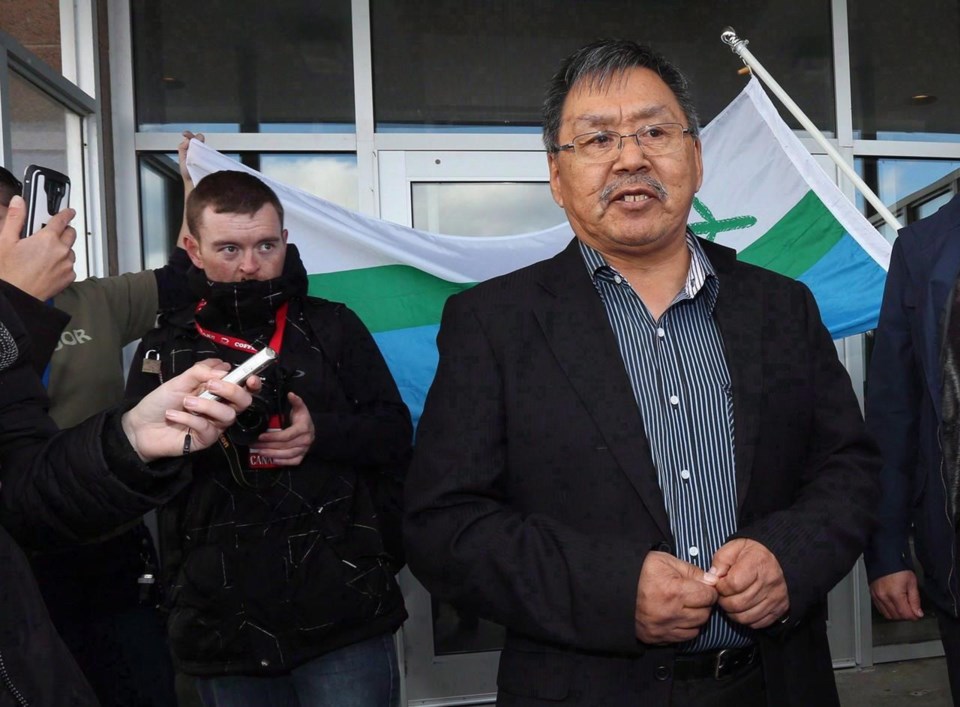ST. JOHN'S, N.L. — The Inuit Nunatsiavut government has pulled out of meetings with Newfoundland and Labrador Premier Andrew Furey, citing concerns about the inclusion of an unrecognized group self-identifying as Indigenous.
A news release says Nunatsiavut President Johannes Lampe will not be attending today's meeting of the Premier-Indigenous Leaders Roundtable, nor any future meetings of the group.
Lampe says he won't participate in discussions if they include the NunatuKavut community council, a group that says it represents about 6,000 Inuit in southern and central Labrador.
The Innu First Nations in Labrador pulled out of the annual meetings with Furey last month, also citing concerns over the inclusion of the NunatuKavut council.
The Innu Nation has launched a Federal Court case asking that a 2019 agreement that sets guidelines for self-determination talks be quashed between the Canadian government and the NunatuKavut council.
Representatives from the NunatuKavut community council were not immediately available for comment today.
“We had hoped to engage in productive and meaningful dialogue with the government of Newfoundland and Labrador regarding the issues affecting Labrador Inuit, but we will not do so while the province continues to acknowledge and support a group pretending to be something they are not,” Lampe said in a letter to Furey, according to the news release.
Tensions flared between the groups in September, when Furey delivered the province's first apology for its role in residential schools to survivors from the unrecognized NunatuKavut territory.
The organization representing Inuit in Canada also does not recognize the NunatuKavut council. Earlier this month, Natan Obed, president of Inuit Tapiriit Kanatami, accused the council of co-opting Inuit identities to secure lands, rights and financial resources.
“NCC is a shape-shifting non-Indigenous organization that is part of the alarming trend of non-Indigenous people and groups co-opting Indigenous identities, cultures, and experiences to secure financial resources and rights,” Obed wrote in an open letter to Canadians on Nov. 6.
Todd Russell, president of the NunatuKavut council, described the allegations as “defamatory,” adding that ITK, the national organization for Inuit in Canada, has “no right” to determine the identity of the people his own group represents.
“Obed’s comments about ‘misappropriation of resources’ very clearly demonstrates the motivations behind ITK’s allegations about us — money,” Russell wrote in a Nov. 6 news release.
This report by The Canadian Press was first published Nov. 21, 2023.
The Canadian Press



